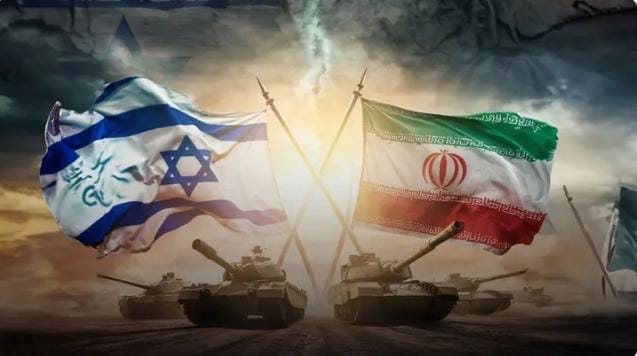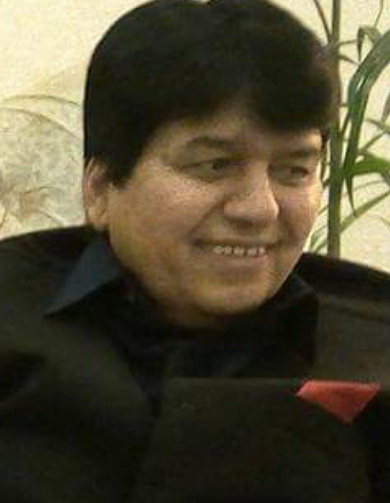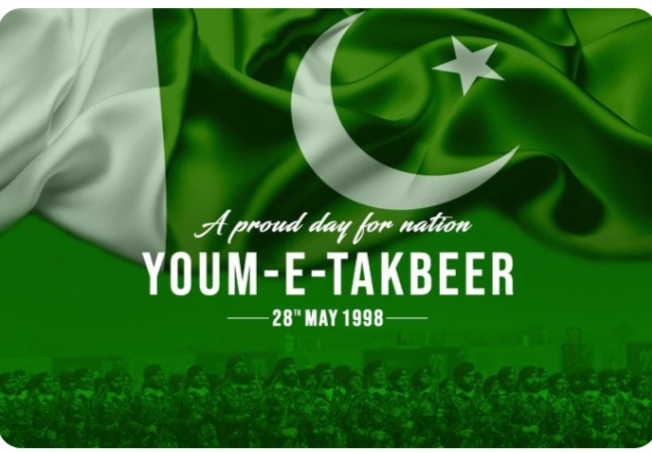Israel – Iran War to burn whole word
The Middle East’s Embers and South Asia’s Silent Alignments
The recent flare-up between Iran and Israel, including the unprecedented direct exchange of hostilities, may appear to be a localized Middle Eastern issue, but its reverberations have begun to unsettle the strategic equilibrium in South Asia. At the heart of this shifting geopolitical landscape lies the deepening strategic partnership between India and Israel—a covert but consequential alliance that poses challenges not only to regional peace but also to the cohesion of the Muslim world and the national security of Pakistan.
India, often portraying itself as a non-aligned power, has in practice evolved into a close ally and military-intelligence collaborator of Israel. This proximity raises critical questions, especially in the wake of Israeli aggression on Iranian diplomatic installations and India’s conspicuous silence on the matter
Hindutva and Zionism: An Unspoken Ideological Alliance
The India-Israel partnership is more than just a bilateral convergence—it is a synthesis of two ideological extremes. Under Prime Minister Narendra Modi, India’s ruling BJP is pursuing an aggressive Hindutva agenda, marginalizing Muslims, Christians, and other minorities. Israel, grounded in Zionist ideology, has pursued systematic oppression and displacement of Palestinians, bordering on apartheid and ethnic cleansing.
This ideological nexus has translated into robust military and technological cooperation. Israel supplies India with advanced drones, missile systems, surveillance technologies, and cyber warfare tools. Notably, Israeli-manufactured drones and advisors have been deployed in India-occupied Kashmir, revealing New Delhi’s readiness to integrate Israeli tactics into its regional assertiveness.
The Iran Attack: India’s Silent Endorsement?
In April 2024, the Israeli airstrike on Iran’s consulate in Damascus triggered Iran’s direct retaliation, igniting fears of a broader Middle East war. Yet, India’s response was telling: no condemnation of Israel’s breach of international law, and an unspoken alignment with Tel Aviv’s narrative of “self-defense.”
Indian media and think tanks not only downplayed Israeli aggression but often depicted Iran as the provocateur. This calculated silence signals a strategic preference and possibly even behind-the-scenes collaboration. International intelligence sources suggest growing cyber and surveillance coordination between Indian and Israeli agencies targeting shared regional “threats”—including Iran, Pakistan, and Turkey.
Pakistan’s Unambiguous Stance: Condemning Aggression, Upholding Unity
In contrast to India’s muted posture, Pakistan adopted a principled and proactive stance. The nation’s top civilian and military leadership issued clear and consistent condemnations of Israel’s actions, reiterating solidarity with Iran and the broader Muslim world.
President Asif Ali Zardari declared:
> “Pakistan strongly condemns Israel’s attack on the Iranian consulate. This is a blatant violation of international law and a grave threat to regional stability. We stand in unshakable solidarity with Iran and our Muslim brothers worldwide.”
Prime Minister Shehbaz Sharif, following a high-level security meeting, told the press:
> “This Israeli aggression is an attack not just on Iran but on the collective dignity of the Muslim Ummah. Pakistan desires peace, but the actions of Israel represent provocation and disregard for international norms.”
Former Prime Minister Nawaz Sharif also weighed in:
> “This is a moment for unity in the Muslim world. The Israeli assault on Iran is naked terrorism. India’s silence is complicity, and the Muslim world must see this for what it is.”
Foreign Minister Senator Ishaq Dar, speaking at an emergency OIC meeting, urged collective action:
> “We call upon the OIC to move beyond rhetoric. Israel must be held accountable under international law. The Muslim world must adopt a unified and actionable stance.”
Pakistan’s military spokesperson, Lt. Gen. Ahmed Sharif Chaudhry, emphasized:
> “Our armed forces are vigilant not only for our borders but for global peace. Israel’s recent actions violate international conventions and threaten Muslim unity. We denounce such belligerence unequivocally.”
India’s Silence: Complicity or Strategic Backing?
India’s silence in the face of Israel’s blatant aggression reveals more than diplomatic caution—it signifies implicit endorsement. This is the same India whose Prime Minister once referred to Benjamin Netanyahu as a “dear friend” and who has never clearly denounced Israeli violence against Palestinians.
Indian think tanks and media overwhelmingly projected Israeli narratives while portraying Iran’s retaliation as destabilizing. Such alignment suggests that India is not merely a passive observer but a willing stakeholder in a broader geopolitical configuration aimed at curbing Muslim resurgence.
The Responsibility of the Muslim World: Exposing the Axis
The Israel-Iran episode is not an isolated incident—it is part of a wider Israeli strategy, now amplified through its alliance with India. This coalition poses long-term threats to nations like Pakistan, Turkey, Malaysia, and even to Islamic voices in Africa and Southeast Asia.
While some OIC statements expressed concern, many Muslim nations continue to court India diplomatically and economically, overlooking its ideological and military entanglement with Israel. This dangerous ambivalence must end. The Muslim world must publicly and consistently expose the India-Israel axis as a strategic and ideological pact designed to undermine the Muslim Ummah.
Conclusion: Israel’s Aggression, India’s Partnership, and Pakistan’s Strategic Doctrine
In light of recent developments, Pakistan must adopt a comprehensive doctrine rooted in four key pillars:
1. Strengthening Islamic Solidarity: Forge deeper strategic partnerships with Iran, Turkey, Saudi Arabia, Qatar, Malaysia, and Indonesia to present a united Muslim front
2. Global Exposure of the Indo-Israeli Nexus: Launch diplomatic campaigns to highlight the implications of the India-Israel alliance on global peace and Muslim sovereignty.
3. Youth and Public Awareness: Educate the masses, particularly the youth, about the ideological underpinnings of this alliance through curricula, media, and digital outreach.
4. Legal and Diplomatic Countermeasures: Pursue legal redress at the UN and the International Court of Justice (ICJ) against Israeli violations and advocate collective action.
Pakistan’s narrative stands firm: it is a voice of conscience, a bastion of Muslim dignity, and a defender of international law. In a world where alliances often compromise justice, Pakistan’s moral clarity offers hope—not just for Iran or Palestine, but for the dignity of the entire Ummah.




